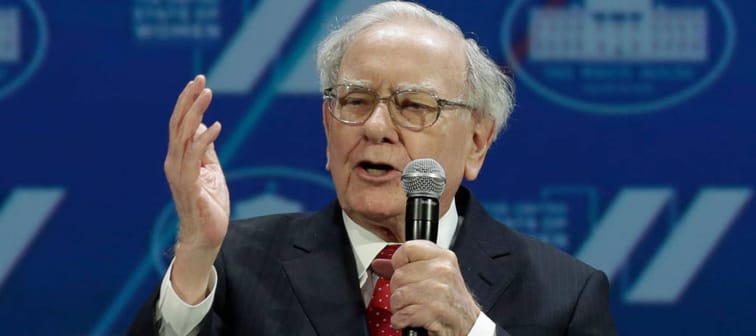Start young
Buffett’s best advice for investors is to get started as early as possible. He has a simple metaphor to explain his wealth-building strategy. “We started with a little snowball on top of a very tall hill,” he said. “We started at a very early age in rolling the snowball down, and of course, the nature of compound interest is that it behaves like a snowball.”
Indeed, the length of Buffett’s career is a key piece of his enormous wealth. He bought his first stock at the age of 11. He’s now 93 years old and still actively investing. In fact, the majority of Buffett’s wealth was accumulated after he turned 65. In 1999, his net worth was just USD$30 billion. Today, it’s nearly four times greater at USD$116 billion, as per Bloomberg.
Staying invested over a long period of time is crucial. Ordinary investors can best harness the power of compounding by starting as early as possible.
A better online investing experience
Easy to use and powerful, Qtrade's online trading platform puts you in full control with tools and resources that help you make well-informed decisions.
Invest NowSearch for small companies
Buffett said that if he were starting again today with $10,000, he would focus first on small businesses. “I probably would be focusing on smaller companies because I would be working with smaller sums and there’s more chance that something is overlooked in that arena,” he said at the shareholder meeting.
In his early days, the billionaire investor focused on extremely small companies that would be considered small-caps. He bought a tiny furniture company in Nebraska in 1983 when it was still expanding across state lines. He acquired See’s Candies when it made just USD$4 million in annual profits in 1972.
These small businesses were overlooked and had more room to grow. That means Buffett had a chance to buy them cheap and watch them expand. Small cap stocks are roughly 30% cheaper than large cap ones at the start of the final quarter of 2023, according to analysis by BNP Paribas. They have also historically outperformed large caps, especially after recessions and over longer periods of time, says MSCI. It’s advisable to diversify your portfolio and add some small caps to your watch list.
Circle of competency
Tom Watson Sr., the founder of IBM (NYSE:IBM), once said, “I’m no genius. I’m smart in spots — but I stay around those spots.” That’s the mantra Buffett has applied to his investing, too.
Investing is risky, and Buffett has mitigated that risk by sticking to industries he understands. Much of his portfolio is focused on either simple consumer businesses or financial companies.
Ordinary investors can similarly reduce risk by avoiding stocks in businesses that are too complex to analyze and evaluate. Stick to your circle of competency and don’t speculate.
For investors who are not familiar or comfortable with stock-picking, a good way to follow Buffett's tip — while reducing risk through diversification — is to invest using an exchange-traded funds (ETFs). ETFs are a basket of stocks that are bought, held and sold based on the ETFs investing goals. While some ETFs are now actively managed — a fund manager makes the decision to buy and sell, based on investment goals and gains — most ETFs are passively-managed. This means that most ETFs buy, hold and sell based on equity market movements. For investors, this means that investing in an ETF lets you capture the gains experienced in the market (and the losses, should the market take a dip).
For more on how to buy an ETF, check out the Money.ca guide. For investors looking to get exposure to ETFs, consider opening a discount brokerage account. A good option is to open an account that focuses on educating the new investor, such as CIBC Investor's Edge. Through a CIBC Investor's Edge account, investors get access to thousands of ETFs and stocks, and can even open and use their brokerage account for their registered savings accounts, including Tax-Free Savings Accounts (TFSA), registered retirement savings plans (RRSP), as well as the First-Home Tax-Free Account (FHSA).
Sponsored
Trade Smarter, Today
With CIBC Investor's Edge, kick-start your portfolio with 100 free trades and up to $4,500 cash back.






